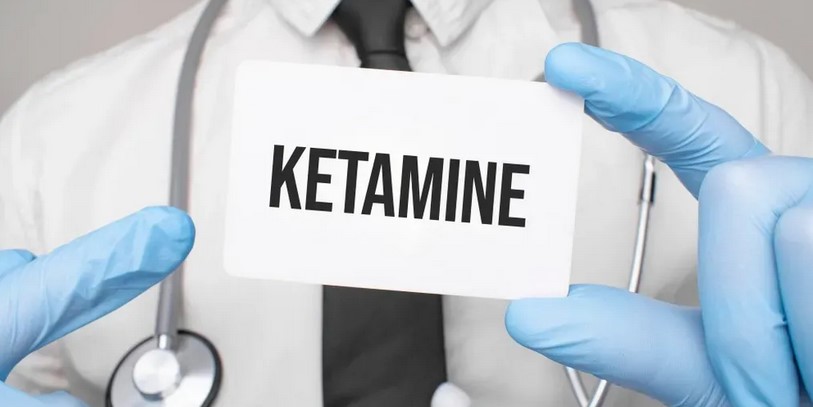This blog was originally published on April 3, 2024. It has been updated to include the most recent information and research.
Alcohol addiction, also called alcohol use disorder (AUD), is a medical condition that affects 28.9 million people aged 12 and over in the United States. In fact, it’s the most common substance use disorder in the world. However, only about 8% of Americans with alcohol addiction receive the treatment they need! And while traditional therapies can help, relapse rates remain high, with 40% to 60% of people returning to alcohol use within the first year. Over the past several years, medically administered ketamine is garnering recognition for its effectiveness in treating alcohol use disorder, particularly in combination with psychotherapy. Learn more about ketamine assisted psychotherapy (KAP).
Recognizing the Signs of Alcoholism
The early warning signs of alcohol addiction can be hard to recognize in your own life, especially because alcohol is socially acceptable, denial is common and you may feel like you don’t have a problem with drinking. Listening to relatives, friends or co-workers if they ask you to examine your drinking habits or to get help is essential. Seeking advice from someone who has had a problem with drinking but has stopped can also be invaluable.
Signs and Symptoms of Alcohol Addiction
Alcohol addiction occurs when your use of alcohol significantly interferes with your life, and you find yourself unable to control how much or how often you drink. The condition can range from mild to severe. Without early treatment, a mild alcohol disorder can easily escalate and cause serious problems. Watch out for these signs:
- Frequent binge drinking
Binge drinking is clearly defined and refers to alcohol consumption that raises your blood alcohol concentration (BAC) to approximately 0.08 grams per deciliter, equal to around five drinks in two hours for men and four drinks in two hours for women. Frequent binge drinking increases your risk of developing alcohol addiction, as well as other dangerous health conditions such as high blood pressure, heart disease, stroke, and cancer. - Neglecting responsibilities
Alcohol addiction can cause people to neglect responsibilities and obligations at home, work, or school despite negative consequences. You may want to quit drinking but are unable to stop or feel discouraged by unsuccessful attempts in the past. - Increased tolerance
One of the first signs of an alcohol use disorder is increased tolerance, which results in the need to consume more alcohol to achieve the desired result. If you have a high alcohol tolerance, you may exhibit fewer signs of intoxication; however, your judgment and reaction time are still impaired. - Withdrawal symptoms
When people with alcohol addiction stop drinking, they often experience withdrawal symptoms such as:
– Sweating
– Rapid heartbeat
– Hand tremors
– Insomnia
– Nausea and vomiting
– Anxiety or depressionThese symptoms may occur within several hours or up to five days after you stop drinking. Withdrawal symptoms from severe alcohol addiction can be dangerous and may include seizures and hallucinations.
Treating Alcohol Addiction with Ketamine Therapy
Traditional methods for treating alcohol addiction include counseling, behavioral therapy, and medications that reduce the urge to drink. Many individuals benefit from rehabilitation programs, which may be inpatient or outpatient, depending on the severity of the addiction. Inpatient programs can range from 30 days to a year, helping individuals cope with withdrawal and emotional challenges. Outpatient programs allow for ongoing support while living at home.
Support systems, such as Alcoholics Anonymous (AA) or programs like SMART Recovery, also play a crucial role in helping those struggling with alcohol addiction maintain sobriety. These communities provide a space for people to share experiences and hold each other accountable, offering encouragement during moments of relapse or difficulty. Conventional treatments can be effective, but recovery from AUD is often a long-term commitment that requires daily effort and comes with a high risk of relapse.
When other treatments fail, medically-supervised ketamine therapy may be the solution, and a growing number of clinical studies support this. Researchers believe that ketamine treatment could be useful in helping participants shift their perspective and view their alcohol problems in a different way, promoting recovery from AUD.
Low doses of ketamine, in combination with psychotherapy, can help patients with severe alcohol addiction stay sober for a longer period of time, often with results taking effect soon after treatment.
At Keta Medical Center, all ketamine treatments are supervised by emergency room physicians, ensuring safety and care at every step.
Find out if ketamine therapy can help you or a family member with an alcohol abuse problem.
Schedule a free phone consultation.






